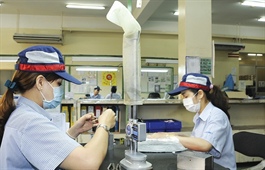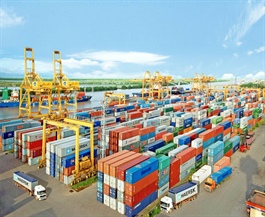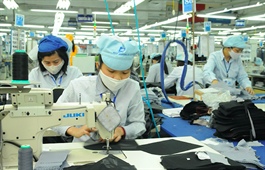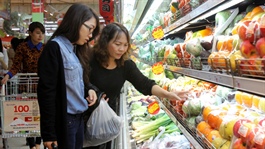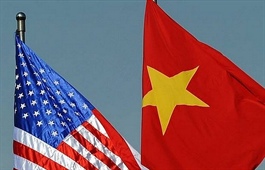Stars align for bounty in foreign investment
Stars align for bounty in foreign investment
While many countries are still suffering under the pandemic and the resulting economic recession, Vietnam has managed to register additional foreign direct investment in 2020. Talking to VIR’s Nguyen Huong, Deputy Minister of Planning and Investment Tran Duy Dong explains why he believes both foreign investment attraction and economic growth of the country will improve significantly next year.
Despite the hiccups caused by the pandemic and social distancing efforts, additionally-registered investment increased. Could you explain why?
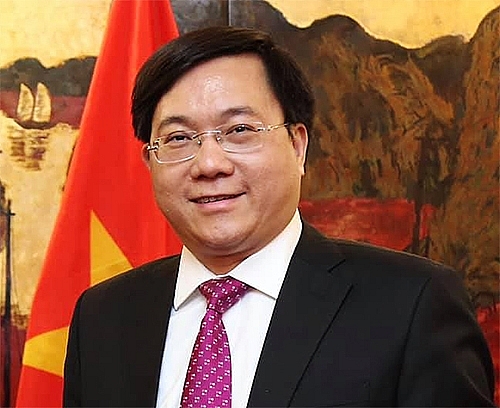
Deputy Minister of Planning and Investment Tran Duy Dong
|
Due to COVID-19, foreign direct investment (FDI) is forecasted to decrease by 40 per cent this year. However, Vietnam’s FDI attraction in the first 11 months of the year has not been so bad, achieving $26.4 billion – a drop of 16.9 per cent on-year – while its disbursement amounted to $17.2 billion, only 2.4 per cent less than previously. Compared to other countries, these declines are relatively small.
Here, newly-registered capital decreased only slightly by 7.6 per cent on-year, while additionally-registered capital even came out at $6.3 billion, a rise of 7.8 per cent on-year. These are positive signals confirming the trust of foreign investors.
Moreover, the export-import turnover of foreign-invested enterprises (FIEs) began to increase after 10 months of a continuous downfall. FIEs’ export turnover in the first 11 months was $180.9 billion, 6.6 per cent more on-year, and their import turnover totalled $148.8 billion, up 9.1 per cent, meaning that FIEs have maintained good operation and business results despite the challenges posed by the pandemic.
This year, numerous foreign investors have been interested in the market here, but could mostly not enter the country to exercise their plans. Thus, the Ministry of Planning and Investment (MPI) in collaboration with associations, banks, consultants, and auditing companies organised many online promotion conferences with the participation of thousands of foreign financiers, as well as several online meetings with large foreign investors planning their activities in the country.
These efforts confirm that foreign investors recognise and highly appreciate the reforms and improvements by the government, which entice overseas partners to invest here. Moreover, the nation’s many new-generation free trade agreements that Vietnam signed recently create a lot of opportunities for both local and foreign-invested companies.
How has the direction of FDI mobilisation been changing and which sectors and locations will be the most attractive for foreign investors?
Mobilisation policies do not differentiate between locations. However, some cities and provinces have favourable infrastructure conditions to lure FDI easier like Hanoi, Ho Chi Minh City, Dong Nai, and Binh Duong.
The ongoing trade tensions between major markets, together with the pandemic, have accelerated the relocations of large corporations globally to avoid high tariffs and reduce risks.
Thus, Vietnam is one of the most-blessed destinations during this time to welcome the new FDI. Some major manufacturing sectors, which significantly contribute to the export turnover of the country, like electronics, automobile, and renewable energy are among the most interesting ones for overseas investors.
Meanwhile, Vietnam especially welcomes high-tech projects related to innovation, which can facilitate local businesses to join global supply and value chains, thus contributing to the sustainable development of the country. The MPI sees some promising sectors related to the digital economy, which have strongly emerged after the pandemic and are now also paid more and more attention to by venture capitalists.
The pandemic has been creating a lot of opportunities for Vietnam, but the boom and performance depend on various factors related to pandemic prevention and a vaccine. So, we cannot be entirely sure about the development, but we can still see significant improvements and growth soon.
As the pandemic is barely under control in some nations, what hurdles do you see for Vietnam in mobilising FDI?
Apart from Vietnam’s earned reputation for managing COVID-19, and nation offers certain advantages, such as stable politics, fast economic growth, abundant human resources, and international economic integration.
Of these, the legal framework for business and investment is improving significantly, including laws such as the ones on investment, enterprises, and public-private partnerships, which are going to take effect from early 2021, including additional decrees and circulars guiding their implementation.
However, we also see some hurdles on the way to receiving relocated FDI. Human resources quality is not very high, infrastructure and transportation do not meet the demand, and some legal documents are overlapping each other. Moreover, administrative procedures in some cities and provinces are too difficult to follow. Besides this, the country’s supporting industries cannot match the demand of investors, and local businesses’ capacity is not enough to absorb all relocated FDI. Although the opportunities are abundant, these relocations are not just aiming for Vietnam but also for other developing countries like India and Indonesia. So, the government is doing all it can to welcome as many international players as possible.








